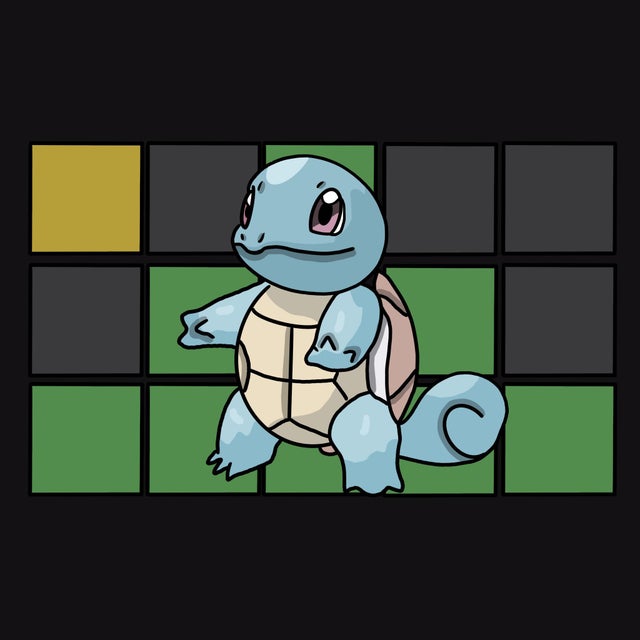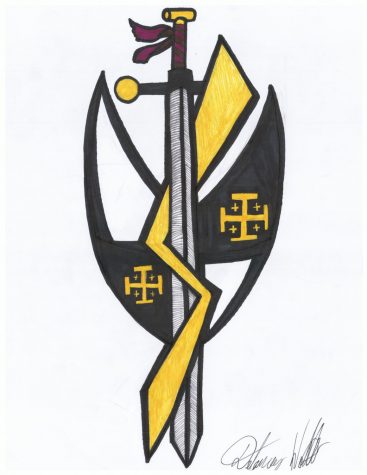Shieldle: An Undiluted Commentary on Today’s Culture
September 29, 2022
The divorce rate in the United States is a little below 50%. The three leading causes of divorce are (1) extensive home renovations, (2) backseat driving, and (3) open floorplans. The newest (and now most prominent) cause of divorce in our country is competitive Wordle.
Hyperbole aside, to fully explore the cultural revolution of Wordle, we must go back to its origins. It is a word-guessing game where players have six chances to guess a five-letter word. On November 1st, 2021, just 90 people in total played Wordle online. That number was up to 2 million in early January of 2022. In mid-Summer 2022, Wordle usage reached an all-time low. This seems to have been the case because of students being out of their usual routines.
Chapter 1: The Beginning
Everyone was playing it: the game was ubiquitous across the country. It became engrained into our daily routines. Everybody started playing it. People began to grade each other based upon the number of guesses they used in Wordle. It became a competition between teenagers and parents, among friends, and anybody you could talk to. It was no longer the Red vs. Blue divide; it was what word you started with in Wordle. No longer was it rich and poor; it was those who got the Wordle in four guesses and those who got it in six (Sixers). Those who got in four always claimed to be better, more superior, and streets ahead than those who used more guesses. Sixers, of course, were relieved that they got it at all,because people who failed at Wordle became outcasts of society: mocked, berated, and thrown out into the margins of society. It is those people who took it too far and ruined it for the rest of us…
Chapter 2: The Reckoning
It is those people who took it too far and ruined it for the rest of us…
Failed Wordlers began a crusade against the competent faction. This would require Sixers and all Wordlers to work together, a feat that, sadly, we would not be able to accomplish. An epidemic of backseat Wordleing (people who yell possible answers over someone’s shoulder) became as widespread as the game itself; people lost their filter and, with it, their decency. As discussed, divorces increased, friendships were ruined, and no one was calm with them lurking near. No longer could you pass someone on the street and trust in their reasonableness: innocent until proven guilty was the norm no more—it became backseat Wordler until proven otherwise. This epidemic made some of us wonder how our society had become so dystopic.
Even worse were those who actually spoiled the answer. (No, there’s no clever name for them. They are regarded as the lowest of the low. When they said “the last shall be first,” they meant to exclude these people.) These people would get their answer before everyone else, then post it on their social media. These people spoiled it for hundreds of people at a time. Even, even worse were those who got the answer a day early. This is done by changing the date and time on a mobile device to the next day and logging on to Wordle. These people are truly unforgivable.
Chapter 3: The Adaptation?
Computer programmers seized upon the popularity of Wordle by creating many variations of it, among them being:
- Bardle (Shakespeare Wordle)
- Worldle (Map Wordle)
- Dordle/Quordle (double/triple wordle)
- Nerdle (Math wordle)
In addition to playing the actual Wordle, people started to play these variations. Of course, the feud between spoilers and the spoiled continued until the game itself became unpopular.
Chapter 4: The End?
In hindsight, though the game sowed division, it was a unifying force overall. In a time that was already so divisive, Wordle gave everyone something in common. It also was a rare constant in the tumultuous and changing lives we lead. Before this, there was no real unifying, common theme between citizens in this decade. Years ago, there was reading the daily newspaper and watching the same movies in the theatre. In the digital age, those opportunities are now few and far between. We, as a society need to search for the next Wordle—anything to bring us back together again.
Indeed, some still play this game every day, but they are quiet about it. These people are not necessarily persecuted, but most try to stay away from them. We as a society have moved on: it’s time to tell them to let that time go; it’s the old way. It’s become a sporadic sight to see someone playing Wordle. By extension, the adaptations of the game have also lost popularity.
This game changed our society. It challenged us to become more literate, and to think deeper about our word choices. (Although: does learning one new five-letter word everyday really improve vocabulary?) Also, this game did nothing to increase my Scrabble skills, since five-letter words are too short.
Overall, this game caused a subtle (but somehow publicized and widespread) cultural revolution. There’s no telling where we would be without the game, and then again, there’s no telling where we are going with the game.

